Chimps and People
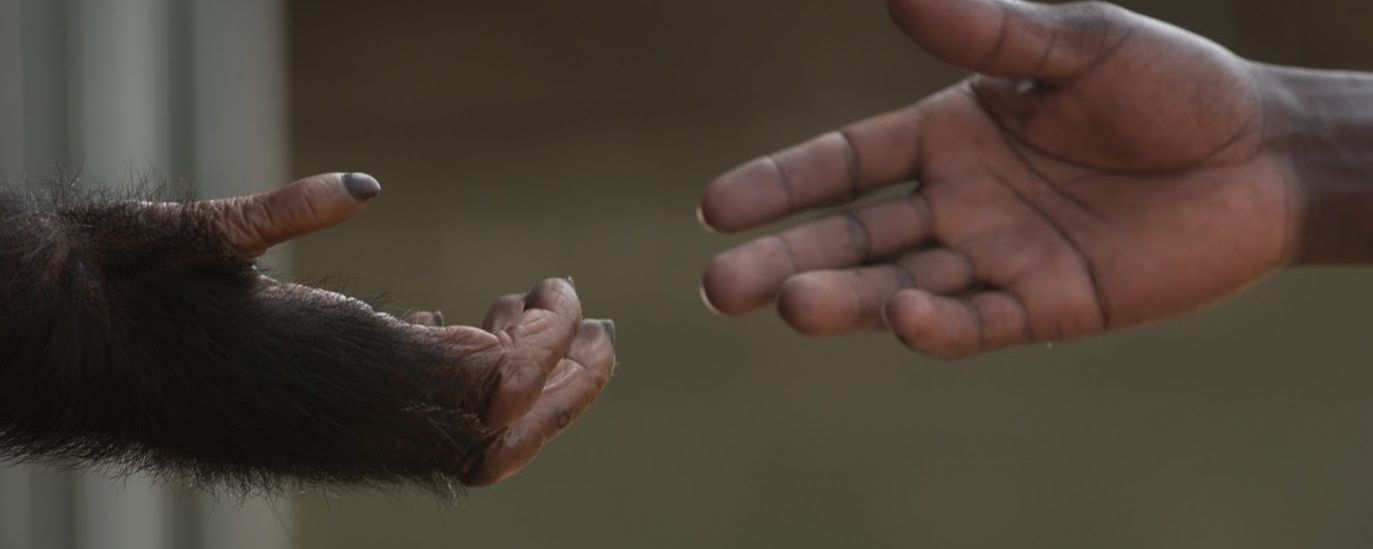
Chimpanzees are our closest cousins in the animal kingdom, but did you know that they share nearly 99% of our DNA?
In fact, chimps are more closely related to humans than they are to gorillas. But the similarities we share go beyond our genetic makeup.
Check out these 10 ways chimpanzees and humans are the same!
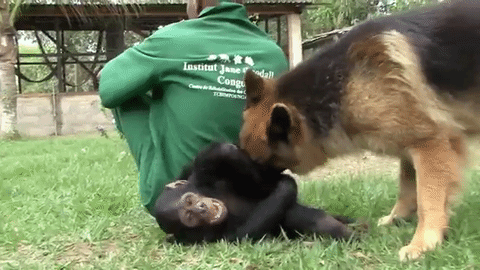
1. Chimpanzees laugh when tickled. That’s right—you’re bearing witness to Tango, the resident Tchimpounga Sanctuary dog tickling Mambou into submission.
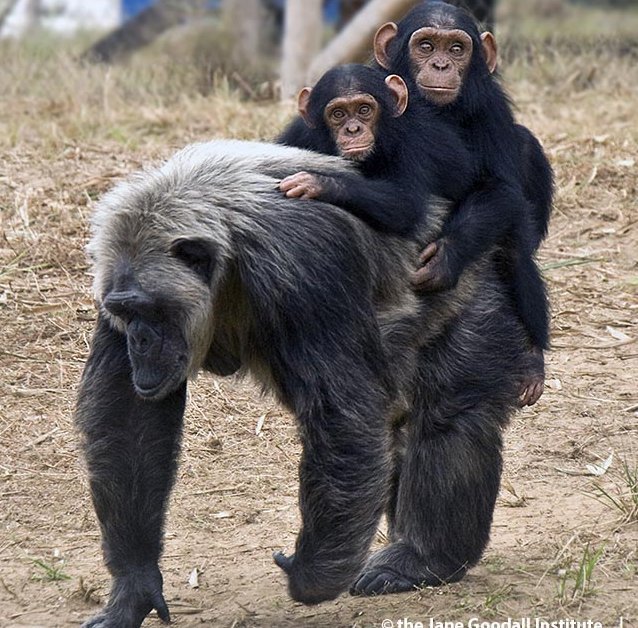
2. Like us, the first five years of a chimp’s life are spent playing, socializing and developing a strong infant-mother bond.
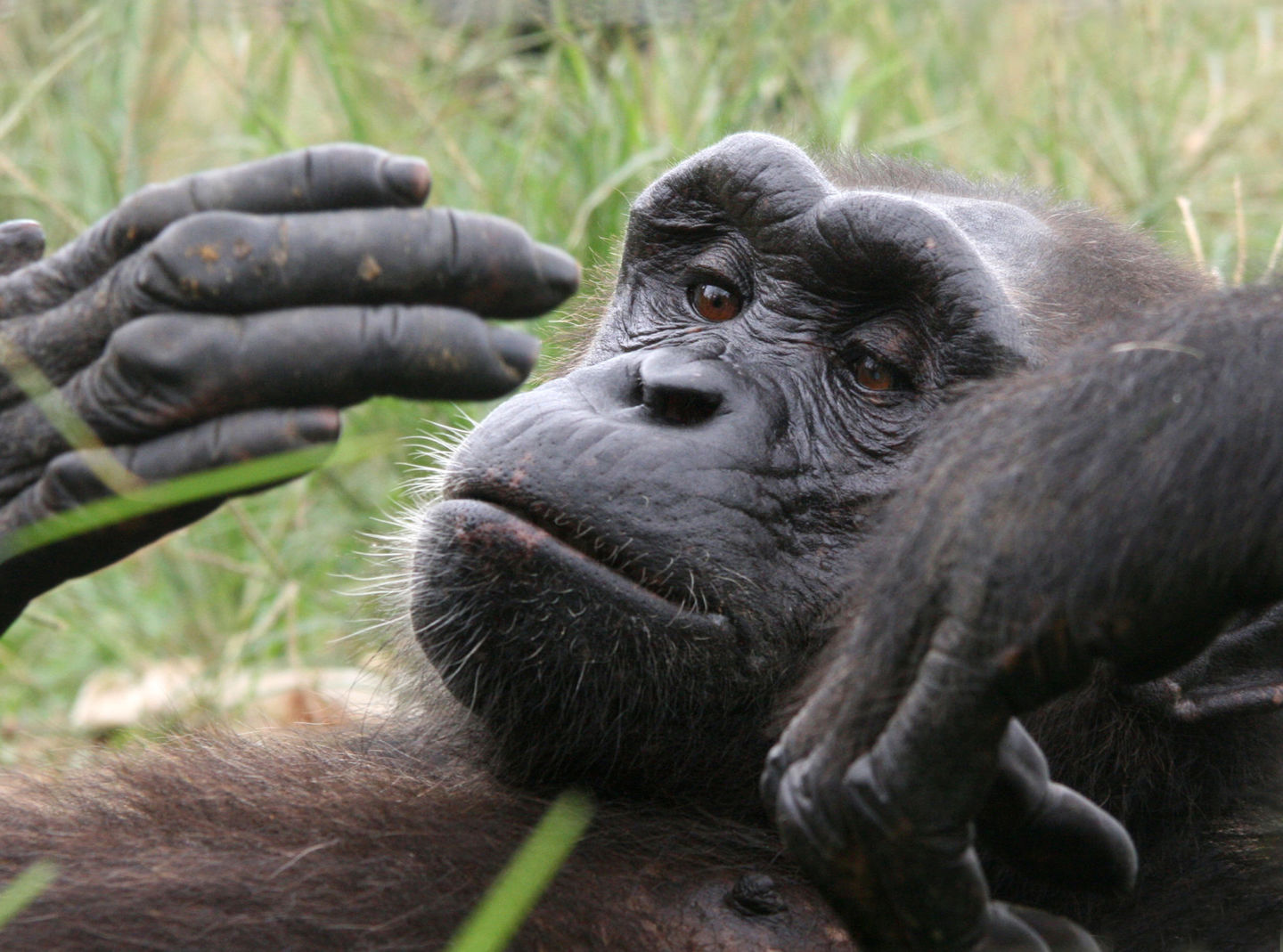
3. Though the human brain is larger, it is structurally identical to a chimpanzee’s. This means that chimpanzees are capable of reasoned thought, abstraction and generalisation. They can even recognise themselves in a mirror—most other animals cannot!
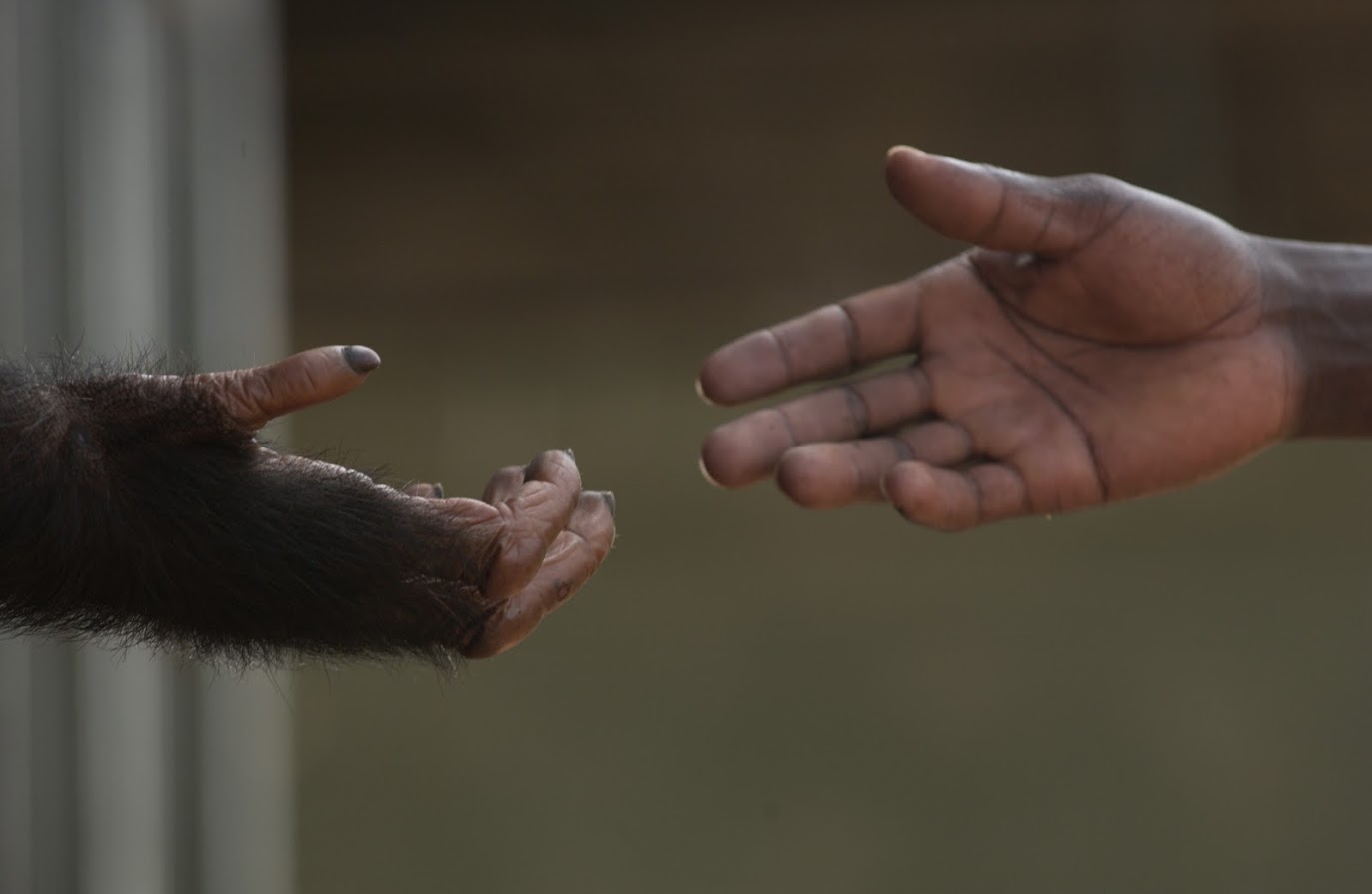
4. A chimp’s body is very similar to a human’s. We have the same bones, muscles, nervous system and the same number of fingers and toes.
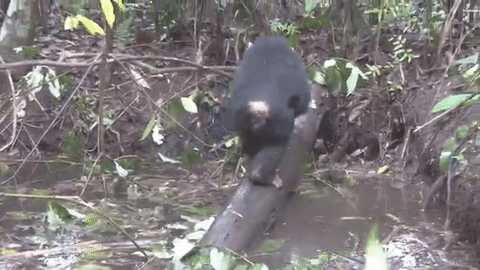
5. Chimpanzees see and experience the world much as we do. Their sense of sight, smell, hearing and touch are very similar to our own.
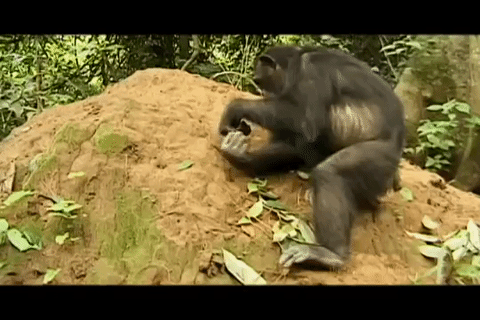
6. One of Dr. Jane Goodall’s most important discoveries was that chimpanzees use tools. While we may not use them to forage for tasty termites like our primate relatives, they sure do come in handy for just about everything else!
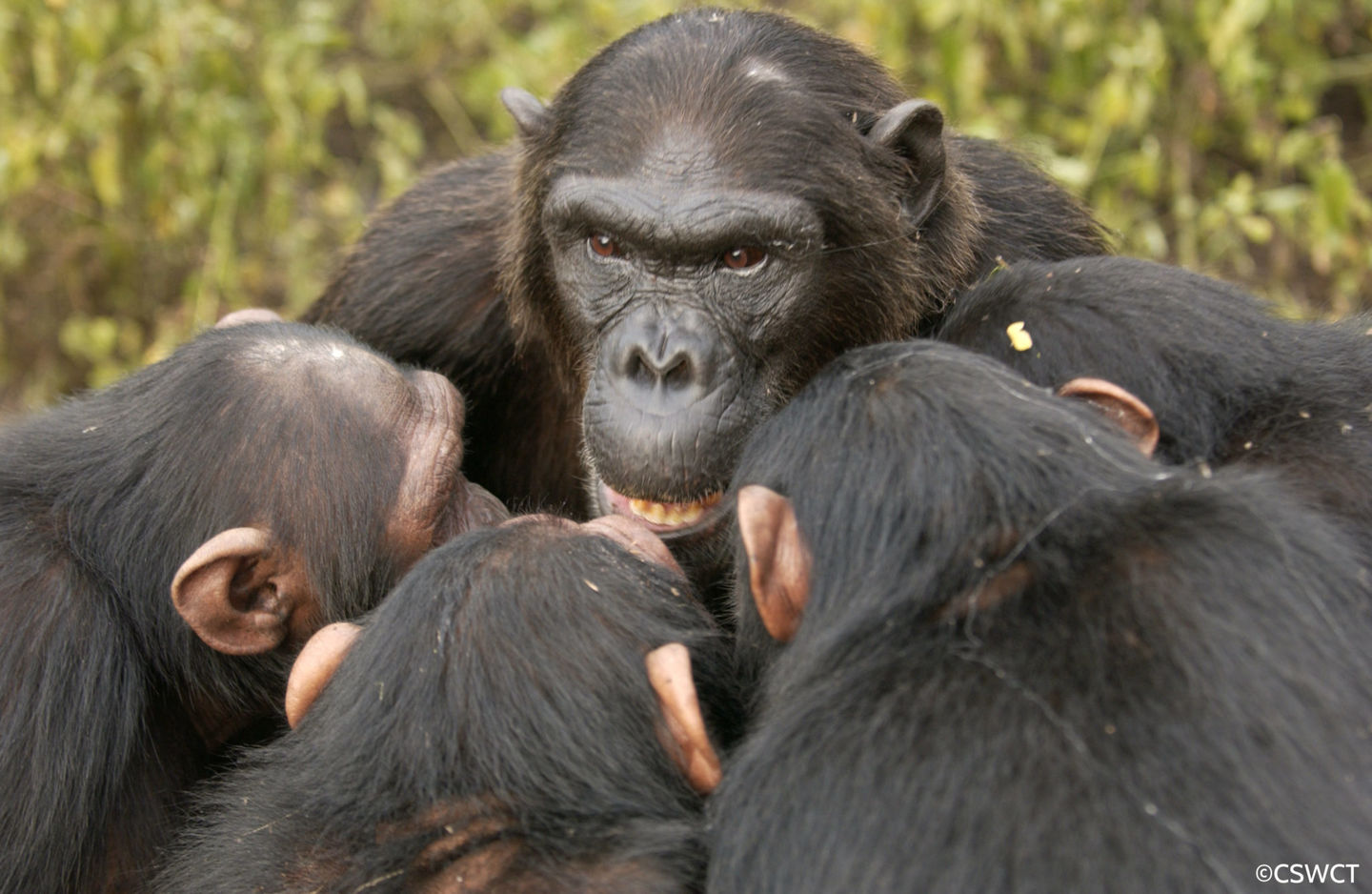
8. One of the earliest discoveries made by Jane Goodall was that chimpanzees hunt for meat. Just like humans, they do this in groups.
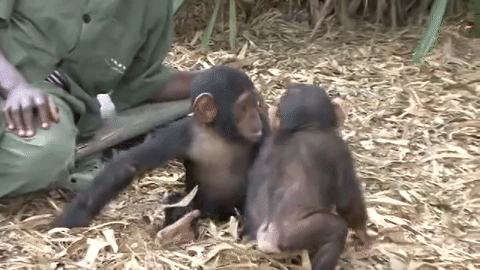
9. Like humans, chimpanzees use body language to communicate. They kiss, hug, pat each other on the back, hold hands and shake their fists.
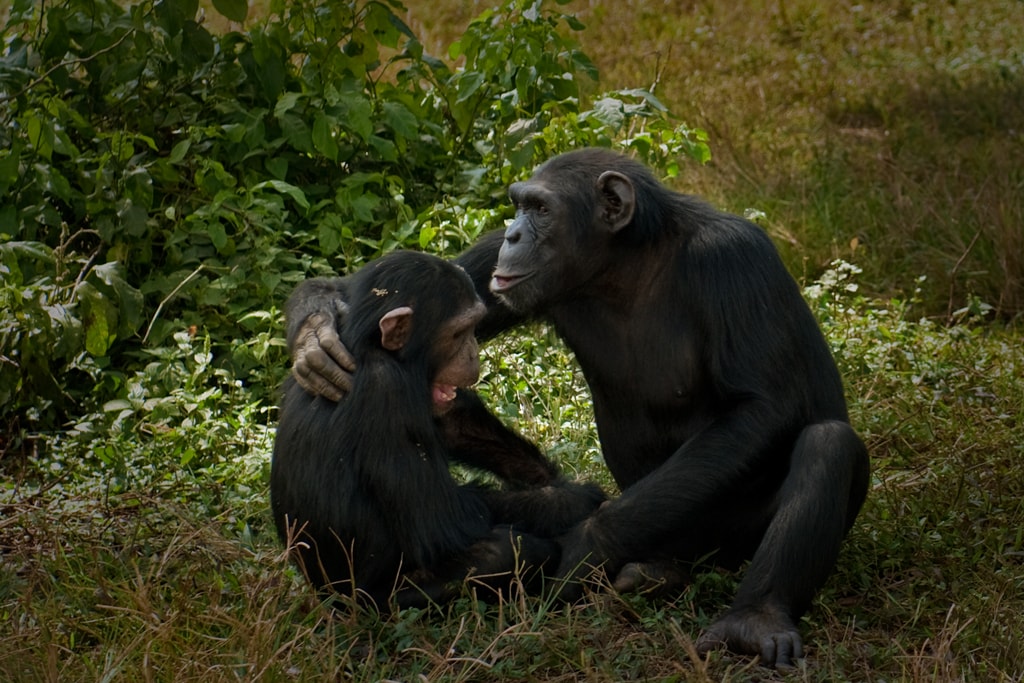
10. Chimpanzees not only communicate like humans, they also demonstrate a range of emotions including joy, sadness, fear and even empathy.
There are, of course, many differences between the chimpanzees and humans —we spend more time walking on two legs, have larger brains and are relatively hairless. But as we discover more and more about our cousins in the animal kingdom, it is worth reflecting on the astounding number of characteristics we share. Just as for humans, we need to consider protection and care of our nearest relative.
